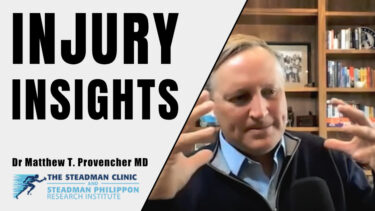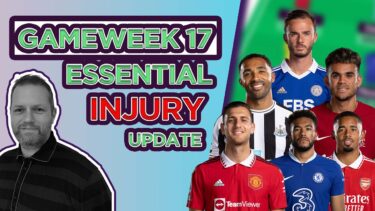A heads-up on football head injuries
There’s a famous old football story that has gained its subject, the former Partick Thistle manager John Lambie, more notoriety than his playing or managerial career ever did. It goes like this:
During a Scottish League match his then centre-forward Colin McGlashan suffered a serious clash of heads with a rival. Lambie’s assistant Gerry Collins examined the injured player on the side of the pitch and reported back that McGlashan “didn’t know who he was”.
To which Lambie quipped: “Tell him he’s Pele and get him back on”.
Head injuries are no joke
It’s a funny line. Enjoyed countless times in after-dinner speeches. I’ve heard both Harry Redknapp and Sam Allardyce retell the story (as theirs).
The punchline was chosen as the title of a successful book of football anecdotes. The tale was even retold at Lambie’s funeral in April last year. As an epitaph, of sorts.
And no doubt brought the house down.
But would people be laughing if Colin McGlashan was now suffering from a premature onset of dementia as a result of the injury? Or, more pressingly, the shoddy treatment he received.
‘If you continue to play after you’ve had a concussion and you suffer a secondary knock, that secondary knock can significantly exacerbate the damage to the brain and cause real problems.’
Luke Briggs, Headway Brain Injury Association
I don’t know the state of McGlashan’s health. But he is now 55; four short years younger than Jeff Astle when he died.
A footballing first nobody wanted
The West Bromwich Albion and England legend was the first British footballer to die from chronic traumatic encephalopathy (CTE), a degenerative brain disease in people (usually athletes) with a history of head injuries, often concussions.
He won’t be the last.
Football has come a long way from the days of the heavy, wet leather balls that Astle and his peers spent a career heading. We no longer see heads wrapped in blood-soaked bandages, or smelling salts used on players. And the sight of underqualified medical staff prescribing a splash of the ‘magic sponge’ and a blast of Deep-Heat to all injuries – before telling a player to ‘run it off’ – is also thankfully confined to history.
Considerable advances in pitch-side medical provision have been made. And there is a much better understanding of the treatment of head injuries, in particular. Mainly down to the great work of the Astle family and the setting up of the Jeff Astle Trust.
The FA have also worked hard lobbying football’s governing bodies UEFA and FIFA on the subject.
But there are worrying signs that standards have begun to slip.
Questioning the role of football’s rule-makers
Earlier this year (in February 2019) a report by the New York Hospital for Special Surgery found that concussion protocols were “ineffective” in two-thirds of matches in last summer’s World Cup. (1)
It was well reported that Nordin Amrabat ignored medical advice in returning to play for Morocco (versus Portugal) just five days after leaving the pitch concussed (against Iran) in the Group Stages. The Watford winger stated he was “his own doctor”, adding that he “hoped he hadn’t done himself any serious damage”. He also disclosed that he was suffering from memory loss. (2)
This raised understandable concern – and criticism – that FIFA’s protocol wasn’t fit for purpose and needed to become a rule, with concrete sanctions.
An even higher-profile incident happened in last season’s Champions League Final. It emerged afterwards that Liverpool goalkeeper Loris Karius suffered a concussion early in the match. He famously went on to make two howling mistakes, costing his club the game. But continuing malpractice could have (even) more severe consequences.
Are we heading for an on-pitch disaster?
In March this year Arsenal goalkeeper David Ospina – currently on loan at Napoli – collapsed during a match having earlier suffered a head injury before being cleared to carry on. There were no snappy one-liners from medical staff reported in this story and luckily it had a happy ending. Ospina was given the all-clear after spending a night in hospital.
But the chief executive of brain injury charity Headway Peter McCabe wasn’t satisfied. “We are all shocked and appalled at these latest examples of concussion protocols not being followed in football”, he said. Adding ominously, “There’s a real fear that it will take a catastrophic injury to a high-profile player before any real changes in attitudes is forthcoming.”(3)
And that’s no laughing matter.
‘If you suspect that a player may be at risk of concussion, the decision as to whether the player remains on the pitch is now the responsibility of the medical practitioner rather than the player. You must assume that the player does not have the mental faculty to make a reasoned decision.’
Johnny Wilson, former Head of Medical Services at Notts County FC, Scunthorpe and Chesterfield FC.
Don’t suffer in silence…
If you or somebody you know has suffered at the hands of shoddy or incompetent medical treatment playing football. Related to concussion or otherwise, Stewards’ Law Firm would like to hear about it.
SISC are an independent body that specialises in providing advice to professional footballers whose careers have been affected by injury. With a view to claiming compensation based on loss of earnings, bonuses or even transfer fees.
- https://www.reuters.com/article/us-health-concussions-world-cup/concussions-in-world-cup-soccer-often-missed-or-ignored-idUSKCN1NH26G
- https://www.telegraph.co.uk/world-cup/2018/06/20/concussion-row-breaks-world-cup-morocco-field-nordin-amrabat/
- https://www.independent.co.uk/sport/football/european/david-ospina-injury-head-collapse-napoli-brain-charity-shocked-appalled-a8829171.html



